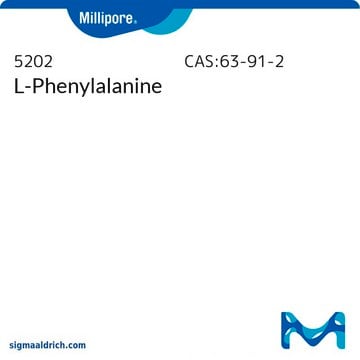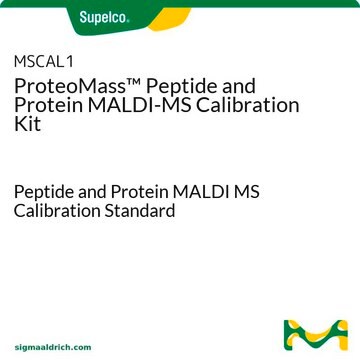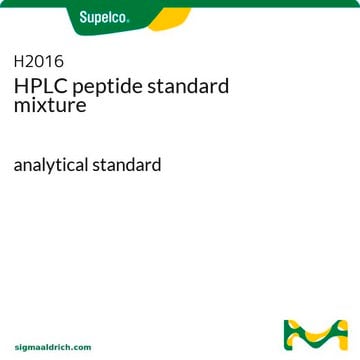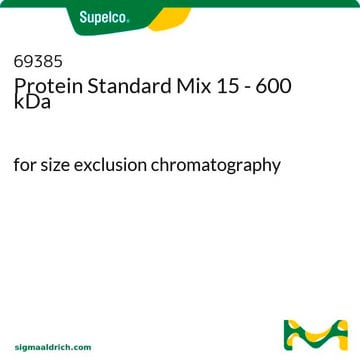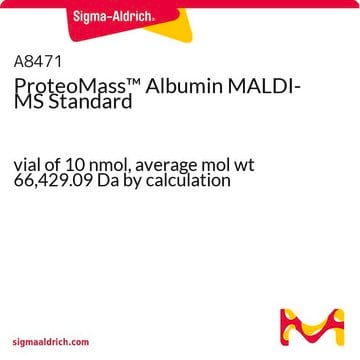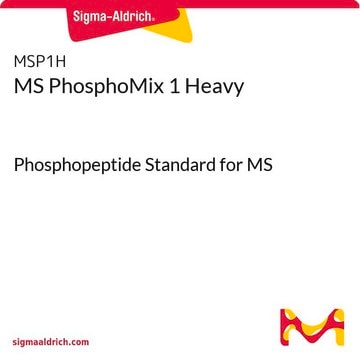UPS1
Universal Proteomics Standard Set
Protein Mass Spectrometry Calibration Standard
Sinónimos:
Standard Set
About This Item
Productos recomendados
formulario
ready-to-use solution
Nivel de calidad
calidad
Protein Mass Spectrometry Calibration Standard
técnicas
mass spectrometry (MS): suitable
temp. de almacenamiento
−20°C
Categorías relacionadas
Descripción general
Aplicación
- Bracketing critical experimental datasets for confirming the robustness of analysis methods
- Comparison of MS or other proteomic data that are generated in different labs using a variety of analytical strategies and instruments
- Identifying limitations of proteomics analysis systems and search algorithms
- An external reference to assist with the evaluation of data derived from poorly defined samples
Características y beneficios
- Test the power of your analytical strategy
- Troubleshoot and optimize your analytical protocol
- Confirm system suitability before analyzing critical samples
- Normalize analytical results day to day or lab to lab
Los componentes del kit también están disponibles por separado
- T6567Trypsin from porcine pancreas, Proteomics Grade, BioReagent, Dimethylated 20 μgSDS
Producto relacionado
Palabra de señalización
Danger
Frases de peligro
Consejos de prudencia
Clasificaciones de peligro
Acute Tox. 4 Oral - Eye Dam. 1 - Repr. 1B - Resp. Sens. 1 - Skin Irrit. 2 - STOT SE 3
Órganos de actuación
Respiratory system
Código de clase de almacenamiento
6.1C - Combustible acute toxic Cat.3 / toxic compounds or compounds which causing chronic effects
Clase de riesgo para el agua (WGK)
WGK 3
Certificados de análisis (COA)
Busque Certificados de análisis (COA) introduciendo el número de lote del producto. Los números de lote se encuentran en la etiqueta del producto después de las palabras «Lot» o «Batch»
¿Ya tiene este producto?
Encuentre la documentación para los productos que ha comprado recientemente en la Biblioteca de documentos.
Los clientes también vieron
Artículos
High-throughput proteomics advances with improved analysis methods and mass spectrometry.
Contenido relacionado
Standardize research with Universal and Dynamic Proteomics Standards, complex and well-characterized reference standards for mass spectrometry.
Nuestro equipo de científicos tiene experiencia en todas las áreas de investigación: Ciencias de la vida, Ciencia de los materiales, Síntesis química, Cromatografía, Analítica y muchas otras.
Póngase en contacto con el Servicio técnico
